When it comes to being the most effective sales professional you can be, it takes time to find the right methodology and style that resonates with your customers. If you've moved organizations or your client base seems to be evolving, it can be good to evaluate the methodology and tactics you're using to see where you might want to change them.
Here we look at both product and solution selling methodologies and give examples of when (and how) companies use them both successfully. Maybe you'll come away with some fresh ideas?
Key Takeaways
- Product and solution selling can both still be effective today
- When selling to larger businesses, like enterprise companies solution selling methodologies can help guide clients through the sales process
- If you sell to multiple markets you may utilize both product and solution selling
What is solution selling and product selling?
Before diving too deep into practical applications of solution and product selling, let's start with some basic definitions.
Solution selling is a way of selling that focuses on the customer's needs, goals, and pain points instead of a product's features and benefits.
Product selling is often considered the more 'traditional' way of selling and focuses on promoting a product for its features and benefits.
Both of these types of selling are commonly used today. Using the right methodology at the right time can be the difference between winning and losing a sale.
How are solution selling and product selling different?
While solution selling and product selling both aim to close the deal, they differ in the method a sales rep uses to achieve this.
When using solution selling, you might not even mention the product or service in the first few conversations. You'll focus on deeply understanding the customer, their challenges and the outcomes they're looking to achieve. You might talk about the way they can get where they want to go, but it will be a while before bringing your product or service into the conversation.
If you're a sales professional on the product-selling side of the fence, you will lead off with your product (or service), telling your prospective customers. about the features and benefits and giving them a deep understanding of how your product will meet their needs or use case.
Solution selling pros
- Solution sellers are often trusted advisors for their prospects and customers.
- Solution selling can help build customer loyalty and lasting relationships.
- Solution selling can help buyers go beyond just obtaining a product or service, they help solve real business problems.
Solution selling cons
- Solution selling comes with a longer sales cycle as it takes time to get to the solution.
- Sellers may need to do more research to truly understand the problem they're tasked with solving.
- Does not work well for more transactional sales.
Product selling pros
- Shorter sales cycles.
- It can produce a high volume of sales in a shorter time period.
- Works well for lower-price products or subscriptions.
Product selling cons
- Does not work well in a competitive market or complex selling environment.
- This can make forming long-term relationships more challenging.
- If your product is similar to another in the market, it can be harder to stand out.
| Aspect | Solution Selling | Product Selling |
|---|---|---|
Pros | Trusted advisor status with prospects and customers | Shorter sales cycles |
Builds customer loyalty and lasting relationships | High volume of sales in a shorter time period | |
Helps buyers solve real business problems | Works well for lower-price products or subscriptions | |
Cons | Longer sales cycle due to time needed to develop solutions | Less effective in competitive or complex selling environments |
Requires extensive research to understand and solve customer problems | Challenging to form long-term relationships | |
Not effective for transactional sales | Harder to stand out if the product is similar to others in the market |
When to use product selling
While product selling is a more transactional sales type, there are many places where it can still be used successfully in a B2B environment. Just because it is more straightforward doesn't mean you can cut corners or skimp on training and enabling your sales teams to do it well.
Selling a physical product to an individual
While this might be a less common B2B sales scenario, you should use product selling when you're selling a physical product to an individual. This could be the latest smartphone or tablet or another item that the person cares about the features, benefits, and pricing rather than how the product will solve their problem.
Selling a lower-priced subscription
If you're selling a lower priced subscription to a smaller group, or single person, where you don't need a deep long-term relationship, product selling is a solid choice. You can lead with what is included in the subscription and share the price per week, month or year.
When your buyer doesn't have many other choices
In spaces where you don't have much (or any) competition, product selling works well. Your customers need what you offer and don't have other choices to get it. This might be like an internet service provider or another utility. Where you may have 1-2 choices at most.
When to use solution selling
If this is the section you're most excited about reading, you're most likely working in a more competitive B2B sales environment and want to ensure you're using the right sales methodology in the right places. Solution selling is definitely more commonly used in these scenarios:
Enterprise sales
Solution selling works well in enterprise sales because it allows sales reps or account executives to guide large buying committees to their products. This is done by deeply connecting the organization's challenges and needs with your solution. For example, a sales rep who is selling new computers isn't just selling a lot of hardware. They are selling peace of mind that the enterprise has the latest, most cost-effective hardware that is easiest to update and maintain as needed. The computers are table stakes; it's the way they solve the organization's challenges that makes them the right solution at the right time.
Complex products or custom solutions
When defining the sales process for a complex product or a custom solution, this should be heavily influenced by solution selling. This is because, in this situation, the product or service is complex enough that it needs to be sold in to support the customer's needs.
Whether you're selling software that needs a number of custom fields and code in order to work for your specific client, or a specialized piece of machinery that requires unique configurations, solution selling can help you navigate the complexities and tailor your offering to meet the customer's specific requirements.
Spending this time upfront to ensure that your solution meets the customer's needs can also help with long-term customer retention.
Competitive sales environments
In a competitive market, solution selling can help differentiate your product or service from a variety of competitors. This is because you are tailoring the offer to your prospect's needs and not presenting cookie-cutter information about the product and its features and benefits.
Your sales pitch is focused on how you solve the customer's issues and address their individual needs.
Product selling examples
Now that we've defined both product and solution selling, let's look at some brands that are good examples of product selling.
Papermate
When it comes to purchasing pens or Wite-Out for your office, you probably have some of the Papermate products. Papermate clearly lays out the features of each pen and the type of ink that they use. From colorful gel pens to basic blue or white, they have what you need and make it easy to find.
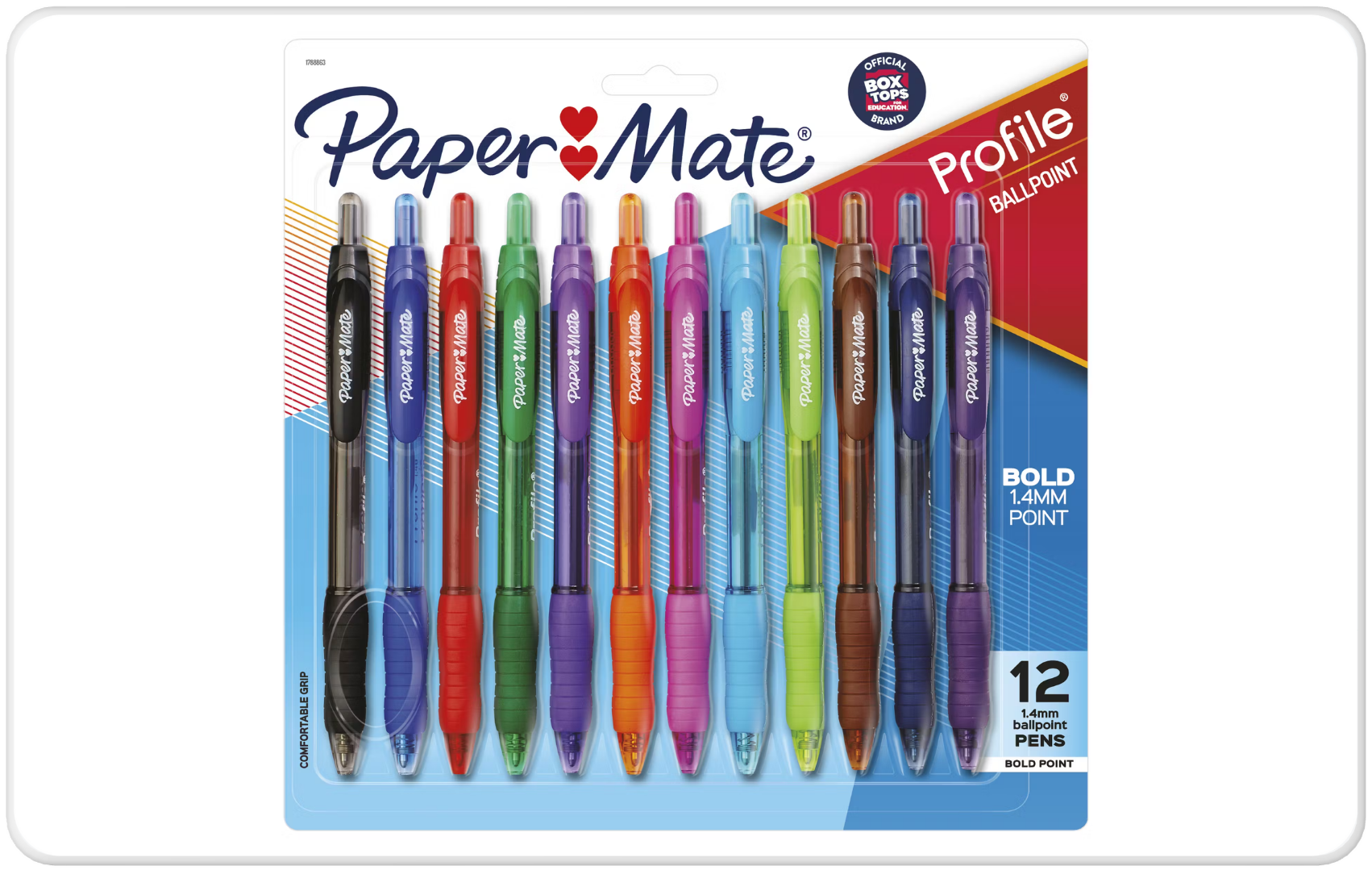
Keurig
Need a quick cup of coffee for your office and don't want to shell out the bucks for a higher-end Nespresso machine? Keurig has the market covered here. Their machines can be used to brew a quick, fresh cup of coffee anytime you need one (like before a big sales presentation).

New York Times Subscription
While there are many newspaper subscriptions you can buy, many people, even outside of New York City, maintain a subscription to the Times. From world-class news coverage to amazing recipes and games like the ever-addictive Wordle, there is no comparison to other newspapers, making it an easy product to sell.
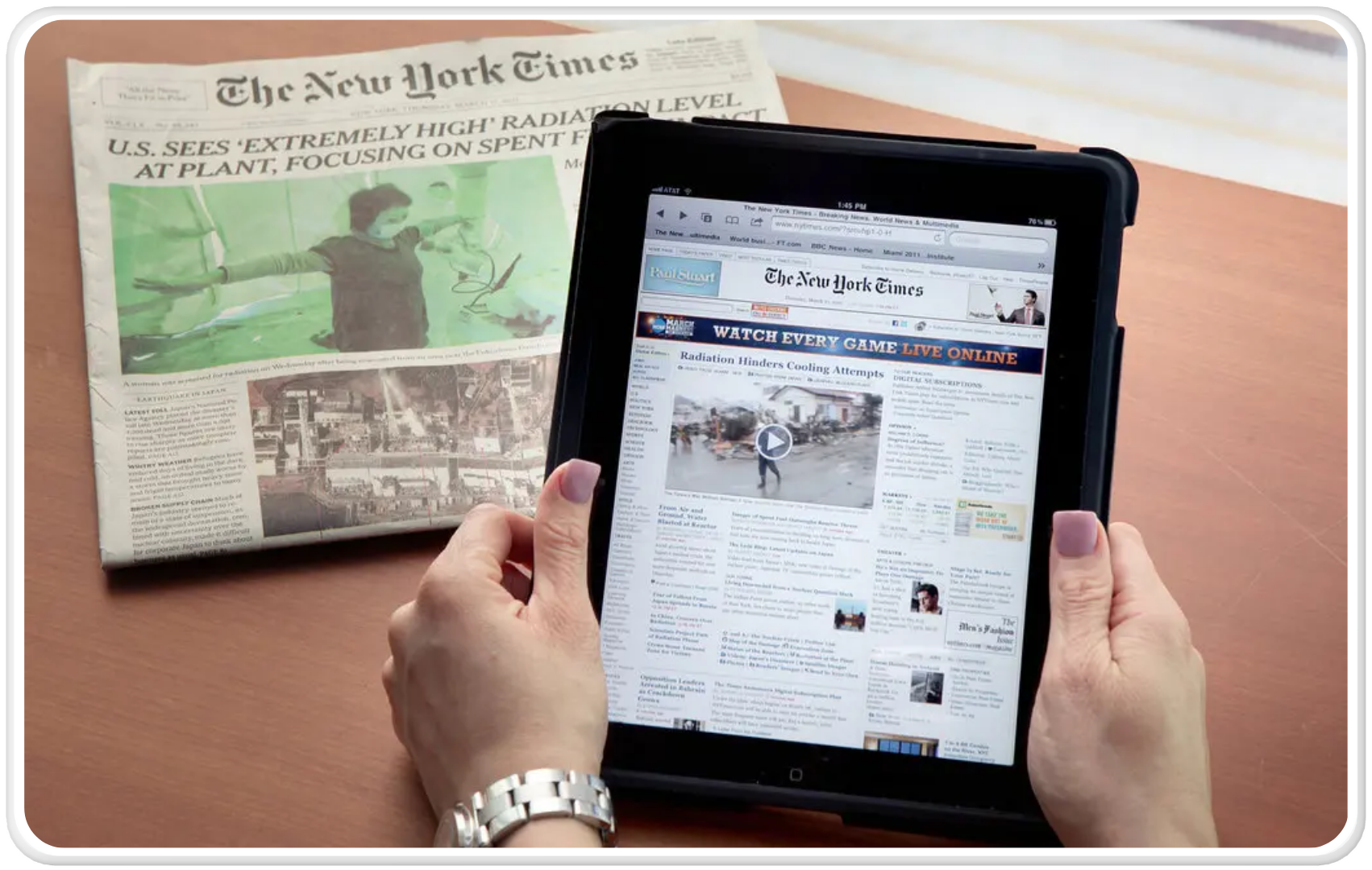
Solution selling examples
Like product selling, there are many classic examples of solution selling in B2B. Here are a few of the best-known:
Salesforce.com
While you can easily purchase salesforce.com for your team, if you have a larger team you may need more guidance and some solution selling/strategic consulting from you account executive.
In addition to buying the licensing there are a growing number of consultancies that offer custom development, admin support, training and adoption support to ensure your team is getting the most from the software.
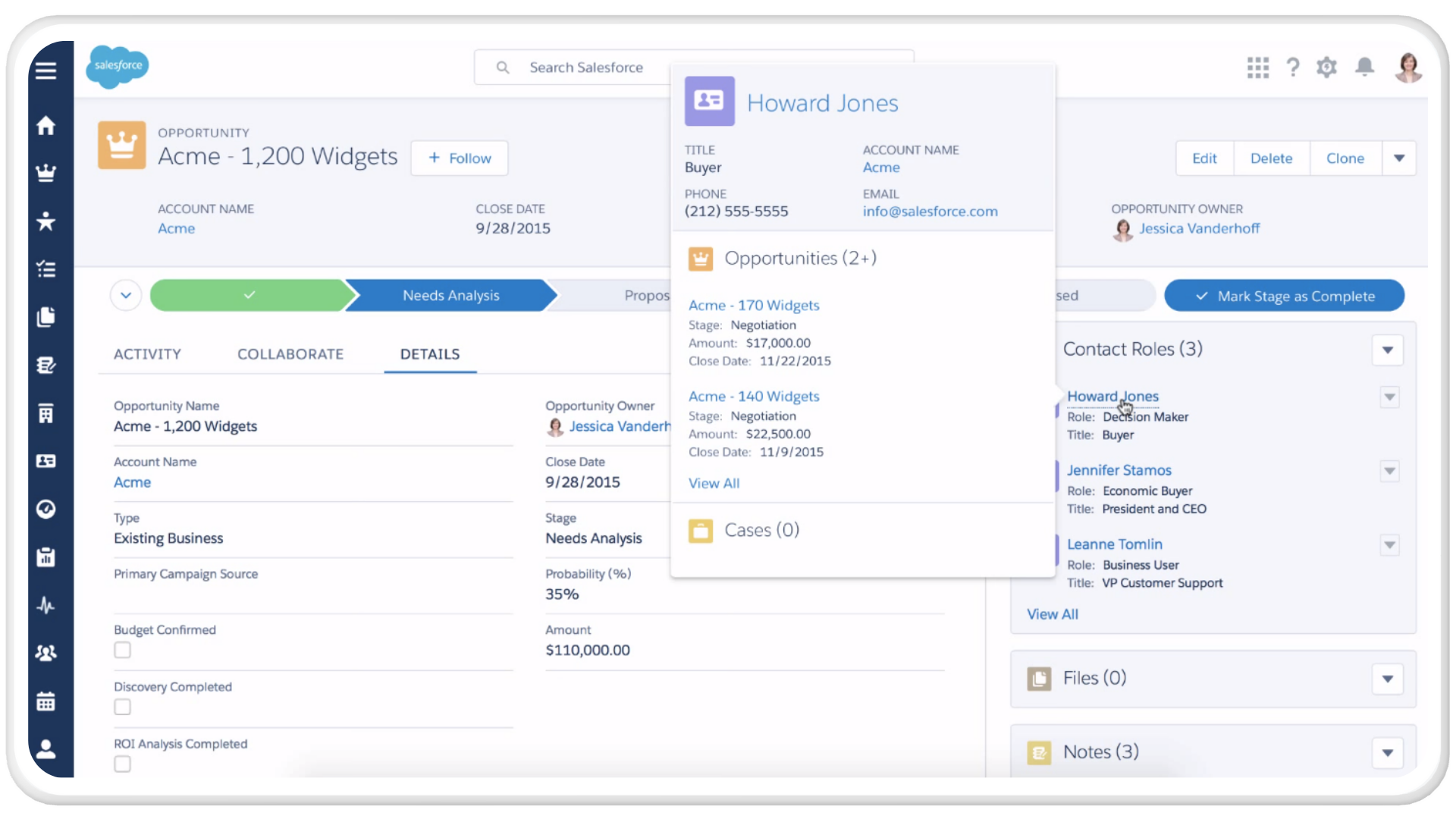
Xerox
While you might not think of a copy machine as a solution if you're buying machines for a 50+ floor office building, you might think differently. A skilled sales rep can help you take your budget further and choose a blend of machines that meet your needs most effectively.
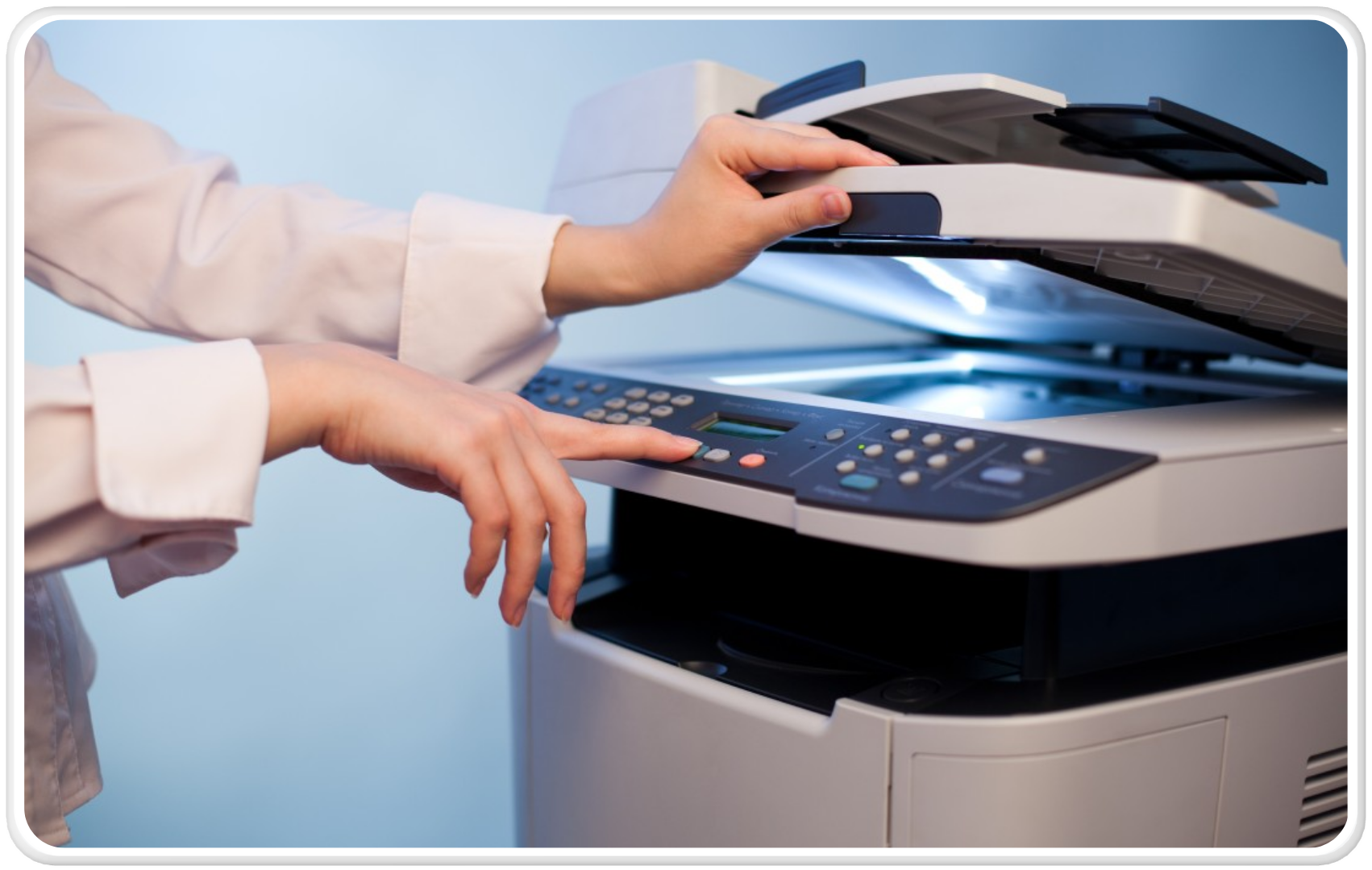
ADP
With so many solutions in the payroll and HR space, ADP needs to use a solution selling approach to stand out from the crowd. ADP offers its sellers a robust training program to ensure they have the insights and answers to the burning challenges and pain points faced by potential customers of every size and scale.
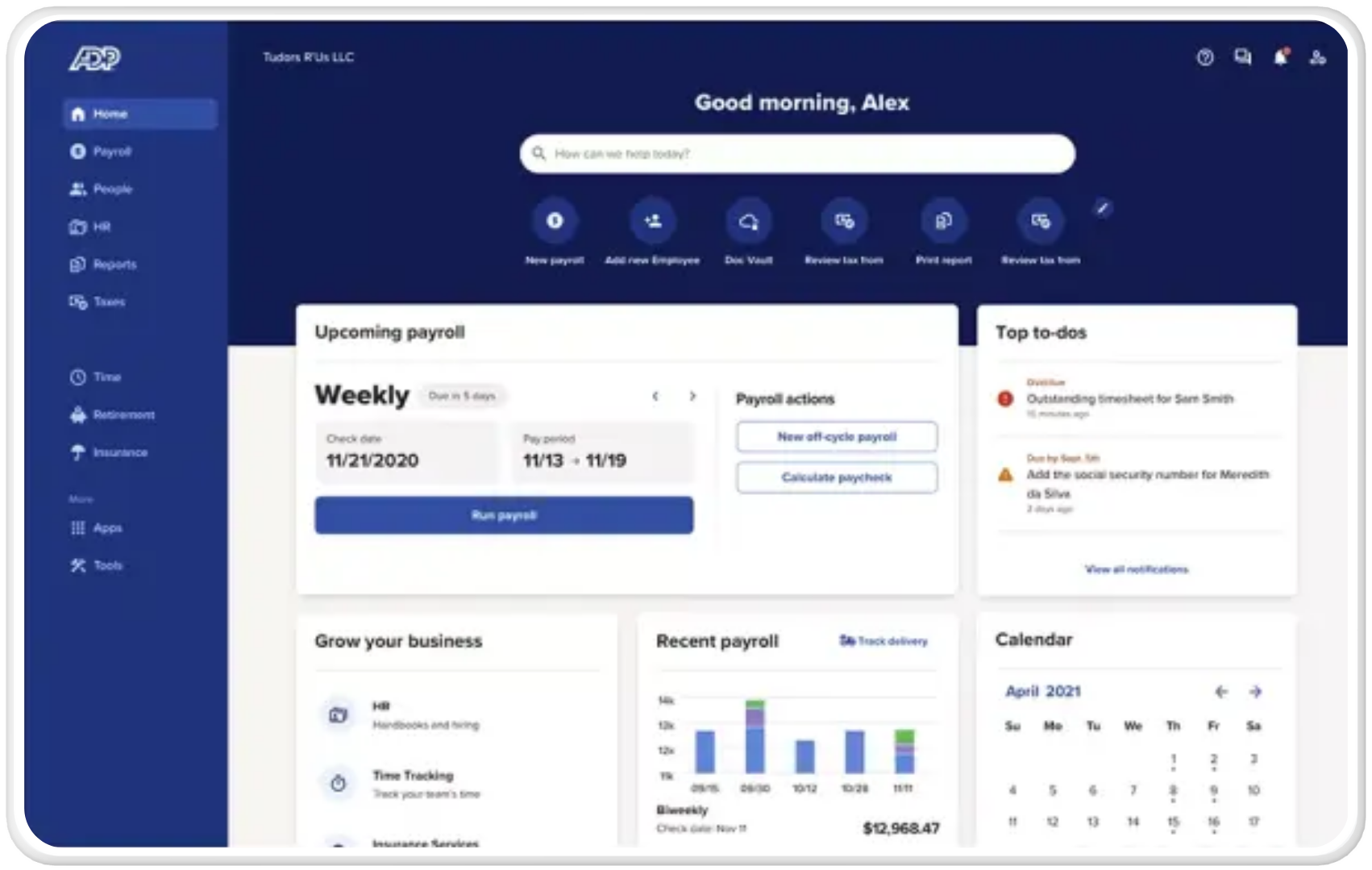
Product vs. solution selling by industry
Since both product and solution selling can be used across a variety of industries, we'll look at a variety of use cases for both types of selling and how to know when to apply each.
SaaS
When it comes to building a sales strategy for a SaaS product, there is a place for both product and solution selling. Look at products like Canva, Asana, and Quickbooks. Individual users and small teams might purchase based on a product selling strategy where they're simply looking at features and benefits.
For larger teams and enterprises, these smart and savvy SaaS companies will use solution selling to tailor their offer to the needs and challenges of these larger, more complex customers.
Enterprise
Enterprise companies generally have more complex problems that require bespoke solutions. Given the volume of their needs, having a deep and lasting relationship can be fruitful for anyone selling into these organizations.
Generally speaking, you will primarily see solution selling (or other complex sales methodologies) when people are selling to enterprise. That said, it's not out of the realm of possibility to see a product selling methodology in the space.
This might look like physical office furniture, a specific brand of coffee or soda in the breakroom, or even paper for the office copier.
In the enterprise software space, you will almost always see solution selling as the systems may need to be tailored to the needs of the enterprise.
B2B
Within B2B sales, there are a lot of ways to sell. This is because businesses have a variety of sizes, structures, and needs. There is no one right way or best way to sell.
If you're selling to solopreneurs or smaller businesses with clearly defined and straightforward needs, you may be able to use a product-selling methodology to share the features and benefits that give these businesses the right value for their dollars.
For larger businesses (and enterprises, Solution Selling as we've already discussed), you might need to tap into more of the solution-selling methodologies and focus on creating personalized sales collateral and tailored solutions for your prospects and customers
Final Thoughts
Choosing between solution selling and product selling depends on your specific sales environment, target market, and goals. Product selling works well in situations where there is little competition, and the focus is mainly on the features and price of the product.
On the other hand, solution selling is more suitable for complex products, long-term customer relationships, and competitive markets where differentiation is key. Whatever approach you choose, it's important to understand your customers' needs and tailor your sales strategy accordingly.
Whether you take a product or solution-oriented sales approach, Qwilr can help you create materials to support your sales process. From full proposals to comparisons and variable pricing tables, you can build out and share what you need to make a compelling case quickly and efficiently.
About the author

Marissa Taffer|Founder & President of M. Taffer Consulting
Marissa Taffer is the Founder & President of M. Taffer Consulting. She brings over 15 years of sales and marketing experience across various industries to a broad range of clients.
Frequently asked questions
Solution selling was invented by Frank Watts of Wang Laboratories in the late 1970s. Another name you might see associated with solution selling is Mike Bosworth, who started a training company called Solution Selling in the early 1980s.


